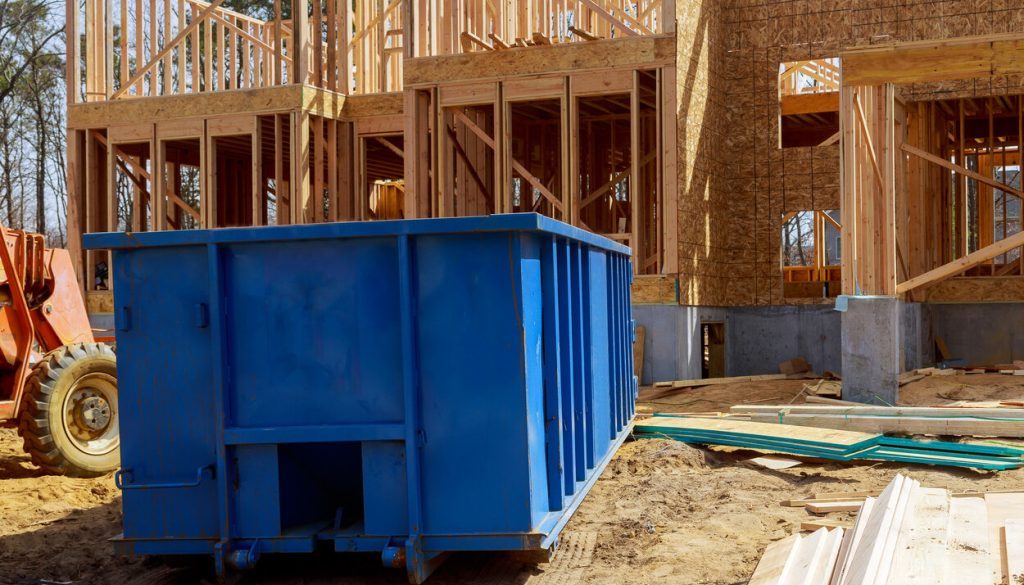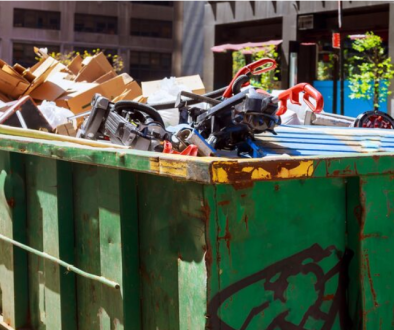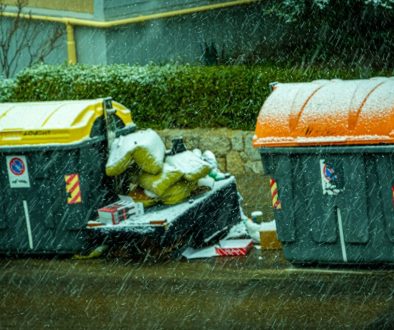Skips are an increasingly popular solution for managing large amounts of rubbish, as they are a great way to reduce the amount of waste produced or sent to landfills, allowing for better disposal of waste materials.
Skips come in various sizes and shapes, allowing for a great deal of flexibility depending on the user’s needs. For instance, some skips are designed to hold a small to medium amount of waste, making them ideal for households that produce a lot of rubbish – however, on the other hand, much larger skips are also available for businesses that need to manage large amounts of waste, such as offices, factories or construction sites.
One of the main benefits of using skips is that they can be placed anywhere, making them an excellent option for disposing of waste conveniently and safely. Skips are typically placed near the source of the waste, such as a building or construction site, allowing for easy access and collection of the waste materials.
This also means that the skips are often located in more visible areas, which can be an effective way to encourage people to dispose of their waste materials properly.
In today’s article, let’s explore some safety tips when it comes to skips. Here’s what you need to know:
Simple Safety Tips
Prepare for the Skips Arrival
When preparing for the arrival of skips, the first step is to decide on the size and type of skip you require. The size and type of skip you need will depend on the amount and type of waste you need to dispose of.
A smaller skip may suffice if you’re disposing of general household waste. However, if you’re disposing of larger items, such as furniture or electronics, you may need a larger skip. It’s also essential to ensure that you’re selecting a skip that meets your local council’s requirements for waste disposal.
Coordinate with Your Skip Provider
When planning a large-scale project, one of the most important aspects to consider is how you will handle the waste generated. Hiring a skip is a great way to quickly and easily dispose of large quantities of waste. However, it is important to coordinate with your skip provider to ensure a smooth and safe service.
Understanding the types of waste your skip provider will accept is essential. Different providers may have different rules and regulations regarding what types of waste can be collected. It is important therefore to ensure that all your waste is acceptable for collection and disposal. Additionally, some providers may have weight restrictions for the skips, so it is essential to know what these limits are and what types of waste can be safely disposed of in the skip.
Dispose of the Heaviest Things First
One of the most important safety tips to consider when using skips is to throw away the heaviest items first. This is important for two reasons. First, it helps to ensure the integrity of the skip itself. If the heaviest items are placed at the bottom, the skip can support the weight of the remaining items without risk of damage or collapse. Second, it helps to ensure that the skip remains safely balanced when it is collected, as by throwing away the heaviest items first, you will ensure the skip does not become top-heavy, and therefore remains stable whilst being transported.
Load the Rubbish Carefully
When loading the skip, be mindful of available space. Overloading the skip can make it difficult to move and can also lead to hazardous materials spilling out. Before loading the skip, check the weight limit and any other restrictions that may apply.
Once the skip is loaded, it is important to make sure that it is securely closed. This will help to prevent any waste from spilling out and will also help to keep the environment clean.
Loading the rubbish into skips mindfully is a great way to help reduce the amount of waste we produce. It is essential to be mindful of the available space and avoid overloading the skip. Additionally, make sure to securely close the skip and label it so it can be easily identified and disposed of properly.
Avoid Crushing Rubbish under Your Feet
When it comes to keeping our environment clean and safe, one of the most important things to remember is to avoid crushing rubbish under your feet. Crushing rubbish can lead to various health and environmental hazards, including spreading bacteria and other microorganisms, releasing toxins, and creating dust and other particles that can be inhaled into our lungs.
To prevent these potential hazards, it’s important to take steps to keep rubbish contained. The first step is to make sure that all refuse is disposed of in designated containers. This will prevent it from spreading and allow it to be collected and disposed of properly.
The second step is to avoid littering. Littering can easily lead to rubbish being crushed by people and animals, so it’s important to always throw away your rubbish in the proper receptacles. Additionally, it’s important to avoid leaving your rubbish in public places, as this can also lead to it being crushed.
The third step is to properly secure any rubbish you have to keep it from becoming crushed. This includes making sure that any bags or containers are tightly sealed and that any loose items are secured. This will help to prevent them from being crushed by wind, rain, or other environmental factors.
The Bottom Line
It is important to be aware of the potential dangers of skips, and the rubbish that they contain, and take the necessary precautions to prevent accidents from occurring.
Following safety tips is essential for the safety of others and for the security of skips. By following safety tips, people can reduce the risk of accidents, theft and vandalism and ensure that everyone is kept safe.
If you’re looking for a domestic skip hire, you’re in the right place. Enviro Skip Hire is a family-run skip hire and aggregate company servicing Staffordshire. Check out our wide range of skip sizes and aggregates. Contact us today to get started and learn more!




